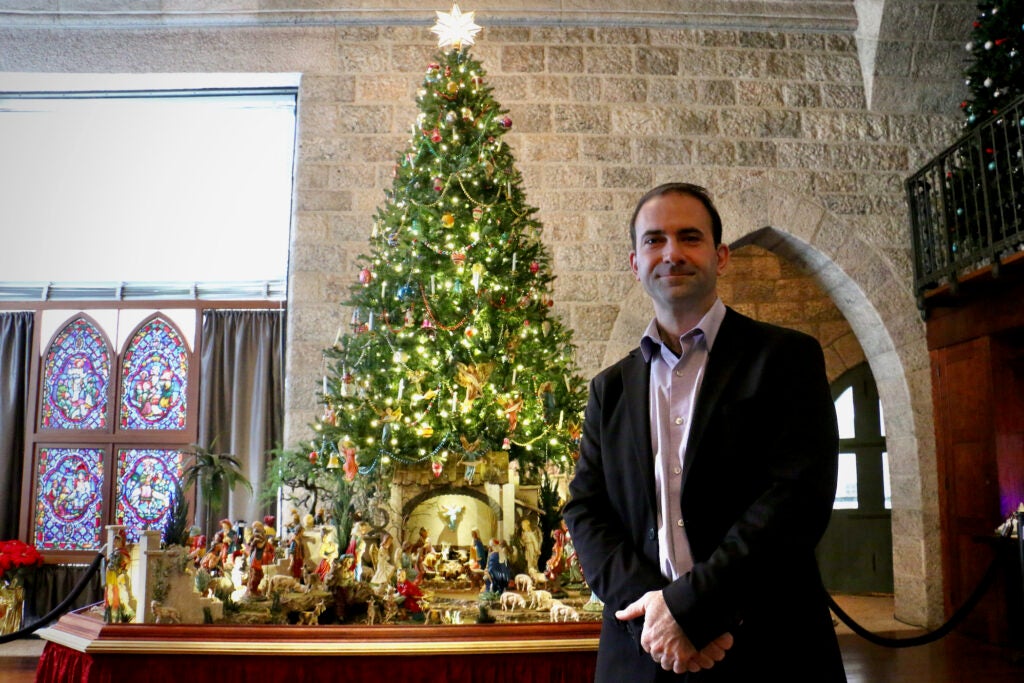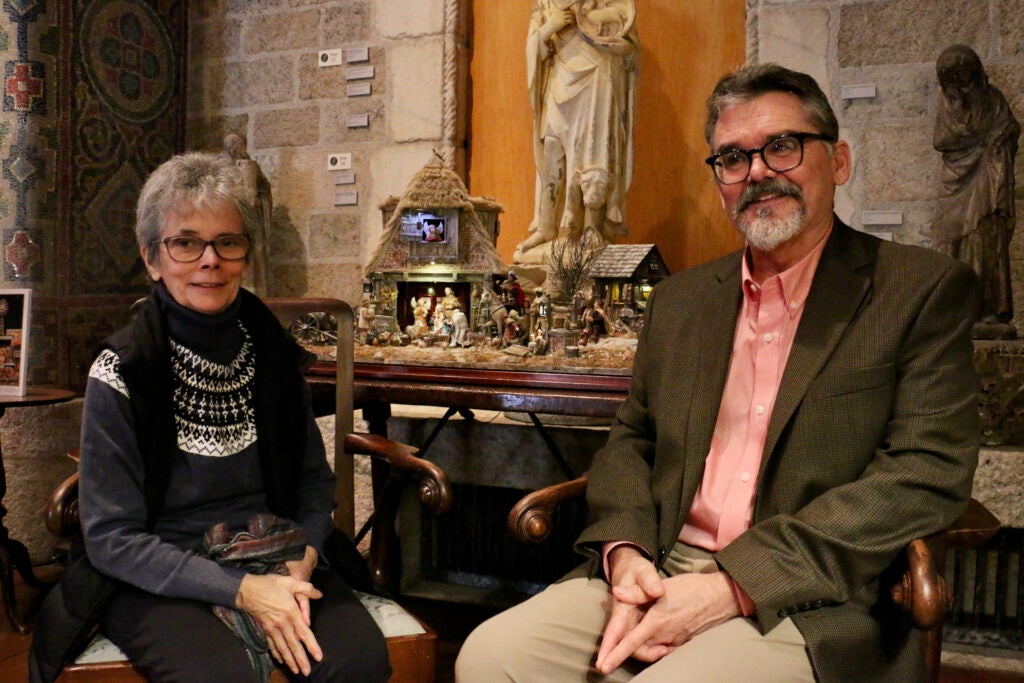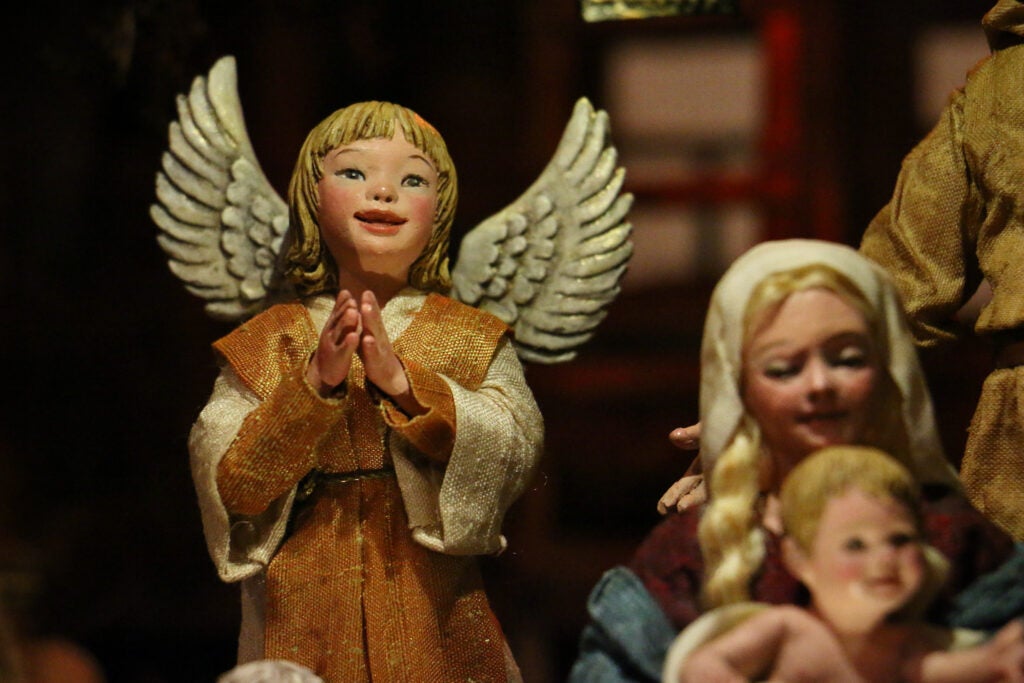[ad_1]
For A.J. DiAntonio, of Malvern, nativity scenes have been a life-long fascination. He recalls being drawn to the family nativity at 2 years old, so much so that his parents gave him his own set to play with. He’s been collecting them ever since.
“I would make nativities out of people’s toothbrushes,” he said. “I always had the small toothbrush because I was a little kid, and I’d walk into my grandparents house and see toothbrushes there. They looked like people with heads and bodies. So I would make the nativity out of toothbrushes.”

DiAntonio turned his obsession into a business, Navidad Nativity, which collects vintage and contemporary artisan figures and builds elaborate nativity scenes for clients. For Glencairn, he made a sprawling “presepe,” an Italian-style scene that presents the visitation of Christ within a busy village scenario. His scene encompasses 100 square feet, populated by 178 vintage figures made by Tuscan artisans. DiAntonio arranged them into dozens of little dramas around the central narrative of the manger.
“I had all the figures on shelves in my apartment,” he said. “Like Mr. Rogers and his Neighborhood of Make Believe, I take things down off the shelves, come up with a different little vignette, start working on another one, and then eventually see if they all meld together. Somehow I got lucky.”
Karen Loccisano and Michael Palan, of Bridgewater, N.J., contributed a nativity they crafted by hand that is also filled with mini-stories surrounding the central figures of Mary, Joseph, and the infant Jesus. “Flemish Nativity” is based on a 16th-century painting “The Census in Bethlehem” by the Flemish artist Pieter Bruegel, famous for filling his compositions with crowds of people and activity.

The married couple has been hand-crafting highly detailed, one-of-a-kind nativity scenes for over a decade. Loccisano makes the figures and her husband Palan builds the scenery. In “Flemish Nativity,” they created a 16th-century Flemish tableau, complete with visiting wise men, curious onlookers, a musician who appears to be waiting for the rest of the band to arrive, and an active farm with lots of chickens and cats.
Those who look carefully at the visiting angel will notice they have facial features distinctive to people with Down Syndrome.
Loccisano said they were inspired by another 16th-century Flemish painting where one of the angels clearly has the face of a person with Down Syndrome. The image by an unknown artist is believed to be the first-ever depiction of someone with the condition.

“It may have been a child of the patron, but as an angel. We’re all equal in heaven regardless of a handicap,” she said. “They don’t really know the story, but they speculate.”
[ad_2]
Source link
